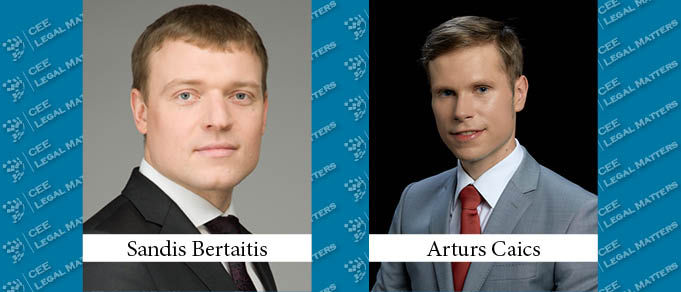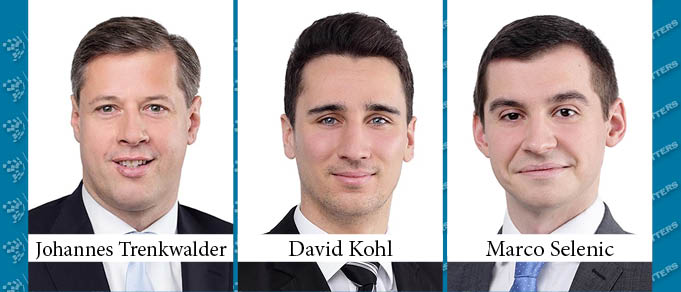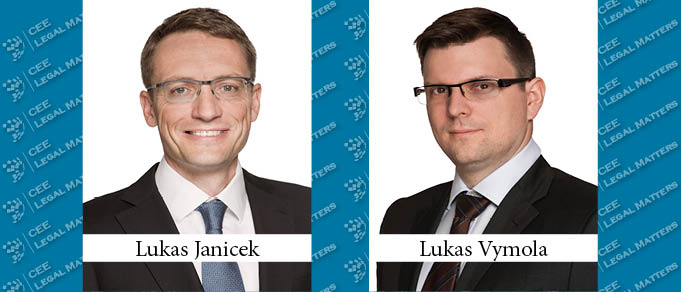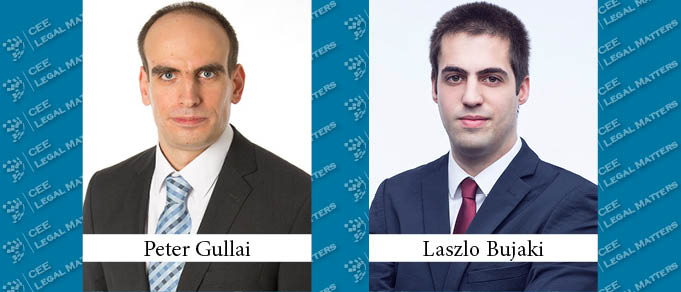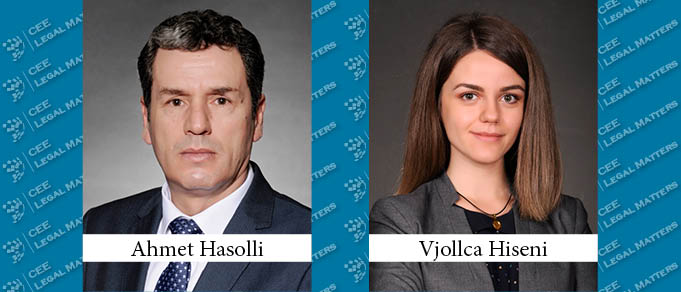The ongoing COVID-19 pandemic and various related restrictive measures have created an extraordinary human, business, and legal situation in Lithuania. The Energy sector (like all others) has become subject to various restrictions and challenges, including restrictions on the movement of workers, partner liquidity issues, reduced demand for energy resources, etc. As everywhere else in Europe, Lithuanian electricity market participants have faced a significant decrease in wholesale electricity market prices. Moreover, it is already clear that COVID-19 has negatively affected the international supply chain, as the energy market participants experience disruptions and delays in the performance of contracts and project delivery. In these extraordinary circumstances, industry players (including operating power plant operators, project developers, and so on) have a reasonable expectation that the government will take the effect of the ongoing international crisis into account if developers do not bid in time in auctions or miss their project deployment deadlines.
Legitimate Expectations of Energy Producers in Latvia Disregarded
The mandatory procurement of electricity (a “feed-in tariff,” or FIT) is one of the main schemes implemented in Latvia to support the production of renewable energy. FIT is a guaranteed right to sell a certain annual amount of electricity to the public entity for a fixed period of time at a price that exceeds the market price. The advantageous system is made available to combined heat and power (CHP) plants of high efficiency and producers using renewable energy. FIT is an important component of each renewable energy project, as renewable energy production without these rights is uncompetitive.
Overview of Montenegro’s Energy Sector
Montenegro is continuing to develop its energy sector by creating appropriate legislative, regulatory, institutional, and financial frameworks to encourage greater investment from the private sector. As part of this process, Montenegro is moving towards harmonizing its energy legislation with that of the European Union, the Energy Community, the World Energy Council, and the International Energy Agency, recognizing energy as a pillar of the country’s overall, sustainable, and long-term stable development, with evident positive macro-economic effects.
Expected Changes of Foreign Investment Control in Austria
The COVID-19 pandemic has revealed the vulnerability of supply chains worldwide, creating an increased awareness of the need to protect critical domestic infrastructure. On April 3, 2020, the Austrian Parliament adopted a motion encouraging the Minister for Digital and Economic Affairs to put forward (“as soon as possible”) a government bill designed to protect companies in key industries from takeovers by third country entities. Eight weeks later the resulting bill was presented to the public.
Albania: Towards Renewable Energy
In 2015, Albania harmonized its legislation with EU Directive 2009/72/EC through law no. 43/2015 “On Electrical Energy Sector” (the “Energy Law”).
Slovenia: A Path Towards Efficient Energy Consumption
Efficient energy consumption, reducing CO2 emissions, and energy from renewable sources have been in the spotlight of the European Union for a while now. Although the Republic of Slovenia has not attained the goals envisaged by the EU by 2020 – i.e., a 20% share of energy produced from renewable sources (i.e., 20% increase in energy efficiency and 20% reduction in CO2 emissions) – it remains above the EU average in that regard. Renewable energy sources amount to less than 3% of the overall energy produced in Slovenia, with the rest acquired through nuclear power (40%), fossil fuels (33%), and hydro energy (25%), allowing for substantial growth of the former in the future.
Serbia: Hoping for Greener Days
Reducing greenhouse gas emissions (GHG) from the energy sector is critical to mitigating climate change. Studies have shown that the electricity sector will play a key role in this mission, primarily through decarbonizing electricity production, which is heavily dependent on the massive deployment of renewable energy.
Serbia: Hoping for Greener Days (2)
Reducing greenhouse gas emissions (GHG) from the energy sector is critical to mitigating climate change. Studies have shown that the electricity sector will play a key role in this mission, primarily through decarbonizing electricity production, which is heavily dependent on the massive deployment of renewable energy.
Green Energy Update from Russia
Climate change and sustainability have become trending issues in Russia with the government encouraging “green” projects. The Russian authorities have been steadily implementing legal acts confirming Russia’s commitment to high standards of energy efficiency and setting out practical steps to be undertaken to achieve these. In this article we summarize the most notable developments and most anticipated legal acts in the sphere.
Electricity Production in Bulgaria Affected by the Pandemic
The main concern in the energy sector in Bulgaria, as in the rest of the EU, has shifted from constantly-increasing electricity prices to a significant drop in those prices during the pandemic. The Independent Bulgarian Energy Exchange (IBEX) reported the lowest prices in Europe – from below EUR 4/MWh to approximately EUR 12/MWh – for the day ahead market during the first weekend of April. Although these record-breaking figures have not stayed constant, the reduction of electricity consumption in the industry sector is still prolonging the trend, which is obviously here to stay. Electricity prices from approximately EUR 14 to EUR 35 for the first week of May are still way below the weighted average price of EUR 48.64/MWh for the day ahead market for 2019.
Future of Energy in the Czech Republic - Legal Prospects
The EU has been preparing for a substantial transition of its energy sector to address the urgency of climate change. The Czech Republic has proposed raising the share of its renewable energy sources (RES) in the gross final energy consumption from the current 15% (approximately) to 22% by 2030 to contribute to the EU-wide goal of obtaining 32% of gross final energy consumption from RES by the same year. This means there will be a focus on developing RES in the Czech Republic, and the Czech government also plans to substantially strengthen the role of nuclear energy while allowing the coal-fired energy to decline.
Hungary: The Results of the First METAR Tender
In March, 2020, the Hungarian Energy and Public Utility Regulatory Authority (HEPURA) published the official results of the first tender procedure of the Hungarian Renewable Energy Support System (METAR), in which bidders were encouraged to apply for state subsidies in (i) power plants between 0.3 MW and 1 MW capacity (the “Small Category”) and (ii) power plants between 1 MW and 20 MW capacity (the “Large Category”).
Ukrainian Renewables Sector – Liquidity Crisis
In recent years, international and local investors have been extremely active in the Ukrainian renewables sector – particularly in solar and wind projects – resulting in a significant amount of project finance and M&A activity in this sector.
Kosovo: Energy Matters in Kosovo
The energy infrastructure in Kosovo has not undergone major change over the past few decades. Due to high reserves of lignite, 97% of Kosovo’s electricity generation comes from two aging coal power plants. Unfortunately, lignite-coal of the kind found in Kosovo is among the most polluting and least efficient sources of energy. Consequently, Kosovo’s infrastructure is outdated and a major source of air pollution.
Inside Insight: Interview with Madalina Juncu of Mondelez
Juncu has been with Mondelez since 2018, when she joined it on secondment from Stratula & Asociatiii. In April 2019, she took on her current role.
Inside Insight: Interview with Florina Homeghiu of Policolor-Orgachim
Florina Homeghiu spent the first decade of her career in private practice before, in 2017 moving in-house with the Coca-Cola Hellenic Bottling Company – Romania, initially as Senior Legal Counsel, then, in 2018, as Country Legal Manager and Compliance Officer. In May of 2020 she joined the Policolor-Orgachim group.
Greece Plays the Long Game
The novel coronavirus has sent markets into a tailspin and forced the scrapping of many plans for this business year. Commercial law firms, their businesses closely tied to the way economies ebb and flow, have been forced to adapt. This global phenomenon is in some ways particularly poignant in Greece, which was finally, after a decade of darkness, showing signs of returning to the light. Commercial Greek law firms, excited about the prospects of a highly-anticipated economic recovery, have discovered they’ll have to wait just a little bit longer. Still, they insist, good times are just around the corner.
Guest Editorial: A Nostalgic Outline from a Moldovan Lawyer in Moldova
I was born in Moldova and obtained my first degree in law from a Moldovan university 20 years ago. Since its independence in 1991, Moldova – a small landlocked country located between Ukraine in the East and Romania in the West – has struggled to survive, being torn apart by various geopolitical interests, political havoc, corruption, and economic fluidity. The legal industry has struggled as well. Although a lot has changed in my time as a lawyer, I cannot confidently say that the legal industry in Moldova has witnessed tremendous growth.


